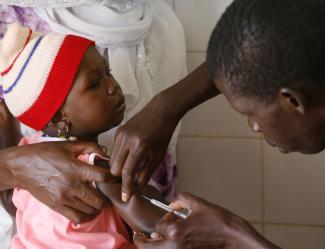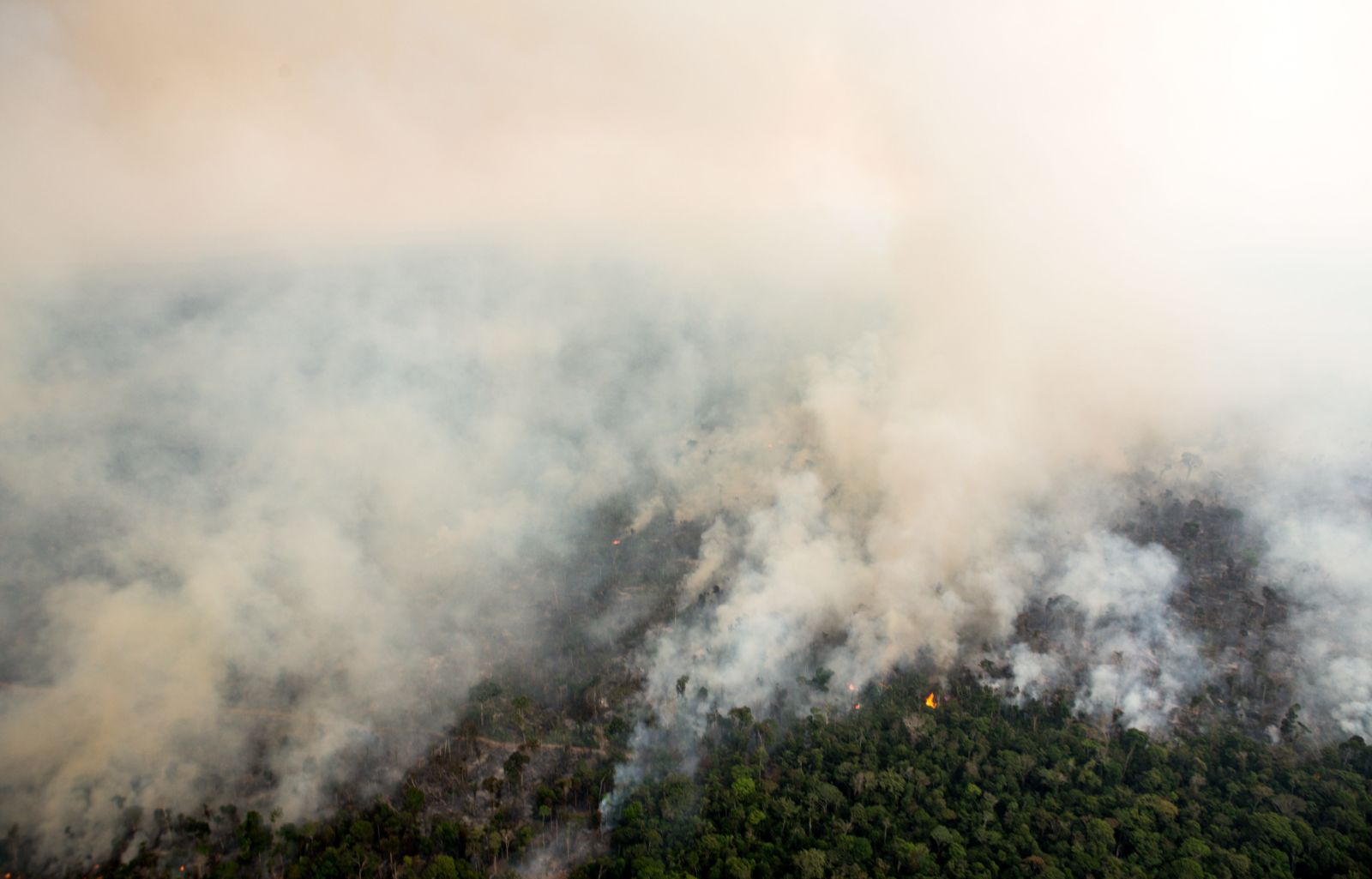Covid-19 immunisation
Just crumbs for Africa?

On 19 May 2020, the World Health Assembly (WHA) adopted a resolution on the fight against Covid-19. In it, future immunisation is explicitly recognised as a “global public good”, and high priority is given to “universal, timely and equitable access to [...] essential health technologies and products”. The resolution makes explicit reference to the World Trade Organization’s Agreement on Trade-Related Aspects of Intellectual Property Rights (TRIPS Agreement), which permits compulsory licensing of drugs and vaccines if public health is threatened. The WHA also recommended the pooling of patents.
A platform for doing that was launched on 29 May 2020 by the World Health Organization (WHO). Christened the Covid-19 Technology Access Pool (C-TAP), it bundles patents and facilitates licensing. The establishment of C TAP was supported by 38 countries, including five EU member states. Germany was not one of them.
Lack of interest
Prior to the Covid-19 outbreak, there were hardly any commercial coronavirus-research projects, even though two coronavirus strains – SARS (2002) and MERS (2012) – were already circulating and causing serious illness. Investment has come almost exclusively from the public sector. The US National Institutes of Health, for example, have invested nearly $ 700 million in coronavirus research since 2003, around $ 100 million of which has gone directly to private enterprises. The Coalition for Epidemic Preparedness Innovations (CEPI) has also invested considerable sums of money.
Before the current outbreak, the pharmaceutical industry itself showed little interest in developing coronavirus vaccines, despite encouragement and funding being offered by the European Commission as early as 2017. In the present pandemic, however, they see the prospect of large government grants and a huge market. The pharmaceutical companies are now in gold-rush mood.
Since May 2020, the European Commission has collected considerable sums of money under the Access to Covid-19 Tools (ACT) Accelerator initiative for the Coronavirus Global Response. European Commission President Ursula von der Leyen stressed: “We need to develop a vaccine, we need to produce it and to deploy it in every single corner of the world and make it available at affordable prices. This vaccine will be our universal common good.” But this promise is nowhere fixed in legal terms. The European Commission has emphasised that it would not expect manufacturers to relinquish their patent rights. The international pharmaceutical industry has further demands: the state should not only invest in the research but also pay for the vaccine factories that will be needed.
Who calls the shots?
Lack of governance is a core problem. The reins should actually be in the hands of the WHO. However, unclear structures and fragmented responsibilities hinder the success of pandemic control.
The ACT Accelerator plays a central role in the collection of pledges and distribution of Covid-19 funds. The international campaign was launched in April by the WHO and other actors such as the Gates Foundation, the Global Fund and industry associations. The respective donors, such as governments and foundations, distribute their funds directly to the recipients. The EU merely keeps a record of whether the payments are actually made.
Another important actor in the distribution of Covid-19 research funds is CEPI, a public-private research initiative that has long been criticised for its unsatisfactory access policy.
Responsibility for the procurement and distribution of vaccines will reside with another public-private partnership, the GAVI Vaccine Alliance. Together with the WHO, GAVI coordinates the international vaccine platform COVAX, which aims to secure options on the widest possible range of promising vaccine candidates. Self-financing countries can secure options on vaccine doses by making down payments.
GAVI uses that money, together with development-aid funds, to make advance marketing commitments (AMCs) to manufacturers. This strategy is controversial, however, because GAVI’s first AMC turned out to be a subsidy programme for the pharmaceutical industry. The funds were used for a pneumococcal vaccine already on the market, for which GAVI paid a price that was far in excess of the production costs.
With COVAX, the industry retains the patent rights for its vaccines and can offer them for sale at any price outside the quotas purchased by GAVI. However, there is no way to assess whether the agreed purchase price is fair; nor is there any guarantee that GAVI will be able to provide sufficient supplies to the poorest parts of the population in low- and middle-income countries.
Although German Chancellor Angela Merkel expressly declared before and during the World Health Assembly that Covid-19 vaccines are a global public good that must be accessible to everyone worldwide, her words are not backed up by political actions. Germany and other major EU member states have so far failed to pledge support for the WHO patent pool C-TAP.
Instead of working for equitable access worldwide, not only the USA but also Europe is evidently pushing its own interests and going easy on the pharmaceutical industry. This is corroborated by the agreements reached with manufacturers. Oxfam calculates that half of the total potential vaccine doses available within a year have already been secured by countries that account for only 13 % of the world population.
Winnie Byanyima, head of UNAIDS and a strong supporter of fair access to medicines worldwide, is fiercely critical of this tactic: “First it was ‘America first’, now it is ‘Europe first’, and Africa is left with a few crumbs.”
Selective negotiations with individual manufacturers, purchase guarantees at inflated prices or voluntary commitments by the industry will not ensure a fair global supply of medicines and vaccines. For that, a patent pool is the more sensible instrument. After all, in order to manufacture a drug in the greatest possible quantities and to be able to supply all regions of the world on a continuous basis, as many production facilities as possible need to be operating. That is only possible, however, if patent rights are bundled, technology is transferred, and licences are granted to large numbers of manufacturers on fair terms. This is precisely what the WHO patent pool can ensure.
By failing to support the patent pool, the German government is hindering important steps towards a fair global supply. As a major donor to GAVI, Germany could also ensure that the allocation of funds to commercial manufacturers is subject to clear commitments to fair pricing and that intellectual property rights are transferred to the WHO pool. On paper, the German government supports the WHO’s leadership role. But more money alone is not enough – it must actively demand and specifically ensure fair access.
Jörg Schaaber is a sociologist and public health scientist. He has worked for the BUKO Pharma Campaign since its inception.
info@bukopharma.de








